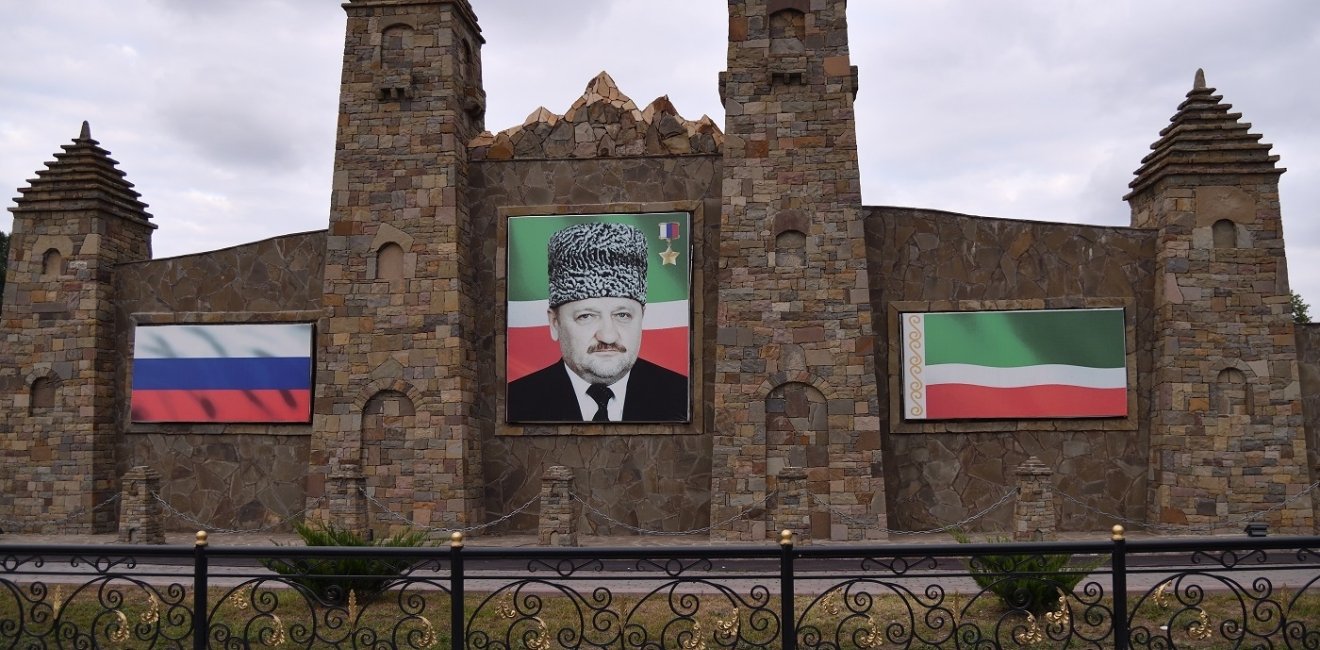
A blog of the Kennan Institute
According to the prosecution, Nikita Zhuravel, nineteen, a resident of Volgograd, set fire to the Quran in front of the city’s Cathedral Mosque. Zhuravel filmed the process, too. The man was arrested in May 2023 and charged with, among other things, “offending the religious feelings of believers.”
The defendant did not deny guilt and, in the strangest of explanations, pointed out that Ukrainian special services contacted him and asked him to do what he did in exchange for 10,000 rubles (about $100).
Despite this set up, this is not a story of freedom of expression clashing with religious sensibilities. This is a story of the use of law for political purposes. The main characters in this play, apart from the young and clueless Zhuravel, are the Kremlin administration, the federal law enforcement agencies, and the leadership of the Chechen republic, headed by one of Putin’s most important allies, Ramzan Kadyrov.
Zhuravel did not deny guilt, expressed remorse and, under Russian law, faced relatively light misdemeanor (not felony) charges. Knowing full well that anyone in Zhuravel’s position would be treated most harshly in one of Russia’s majority Muslim regions, the federal investigative body did just that: it sent Zhuravel to Chechnya. The Russian Investigative Committee stated that the reason for transferring the case to another region was “many grounds, in particular, numerous appeals from residents of the Chechen Republic with a request to recognize them as victims.”
Several lawyers, including the author of this piece, believe that transferring the case grossly violated the criminal procedure rules since “requests by residents” cannot serve as grounds for such a transfer. The voluntary and illegal transfer of the case to another region was only the beginning of blatant law violations. These violations clearly and unambiguously show how the law works (or, rather, does not work) in Russia.
On August 16, Nikita Zhuravel filed a claim with the Russian Commissioner for Human Rights, accusing the son of the Chechen governor, fifteen-year-old Adam Kadyrov, of beating him in the detention center. Earlier, Kadyrov Jr. was in the media spotlight when he and his brothers delivered to Chechnya three prisoners of war who had been captured during the war in Ukraine—“as a gift,” one of the sons explained to his father.
Human Rights Ombudsman Tatiana Moskalkova asked her Chechen counterpart, Mansur Soltaev, to check on the claim. Soltaev promised to do so but has not reported the results since then. Human rights activists intervened and appealed to the authorities, but to no avail.
Few doubted the veracity of Zhuravel’s words. In fact, top Chechen officials were not shy to admit the beating. Magomed Daudov, chairman of the Chechen parliament, actually praised the governor’s son: “I am absolutely sure that Adam acted like a true Muslim, a patriot of his country and a real Chechen!” Adam Delimkhanov, a State Duma member from Chechnya, said the following: “Adam did a very humane thing by letting him [Zhuravel] live.”
On such occasions, law enforcement agencies are obliged to investigate, but they did not. The investigation of the video about the burning of the Koran was carried out immediately. However, no law enforcement agency is interested in the apparent battery inside the pre-trial detention center.
On September 25, 2023, Chechen governor Ramzan Kadyrov himself posted a video of the beating on his Telegram channel. “He beat him and did the right thing,” the governor commented on the video, and noted that he was proud of his son. Adam Kadyrov commented on the incident on his Instagram account: “You can gossip, hate, envy and discuss me. But we both realize that when we meet, you will smile at me nicely.”
A little more than a week has passed since the video was published, but there is no sign of any investigation by Russian law enforcement agencies. Presidential spokesman Dmitry Peskov refused to comment on the issue. “I do not want to,” Peskov “explained.” After the video appeared in the public domain, President Putin held a meeting with the governor of Chechnya. The issue was not raised at that time.
In general, complaints about batteries and torture in places of detention appear constantly in Russia. As a rule, only the publication of video evidence prompts the start of at least some investigation, which has a slight chance of ending with a punishment. Nevertheless, it did not happen in this case, when the video was intentionally published to show the nature of power in Chechnya and the place of local authorities in their relations with the federal government.
As a rule, the government uses the law selectively to punish perceived enemies or to protect loyalists. In this case, the government achieves both purposes. The state punishes Zhuravel through the ordinary criminal justice process and law violations, transferring the case to a region where the alleged criminal will be treated more harshly. The same approach protects those whom the government wants to protect: the governor’s son, the governor himself, and the detention center staff.
Officials in Chechnya support the violation of the law, while the federal authorities remain silent. In the same way, the federal authorities kept silent while investigating the murder of the Russian opposition leader Boris Nemtsov in 2015. When suspicions arose that the murder had been organized from Chechnya, the investigators simply did not pursue the lead.
Russia has been living under conditions of selective law enforcement for many years. It is constantly corroding the country’s legal system and reducing the already low level of trust in institutions. Such selective enforcement has already evolved from individual cases to categories. For example, cases in Chechnya have their own rules for when and how the law is applied.
A similar situation has developed with criminal cases related to discrediting the army and anti-war statements. Such continuous selective enforcement leads to the idea that Russia is now nothing more than a failed state in which the law’s mass operation depends on specific individuals’ wishes. It leads to a situation in which the state loses its ability to govern and maintain its legal sovereignty.
The opinions expressed in this article are those solely of the author and do not reflect the views of the Kennan Institute.
Author


Kennan Institute
The Kennan Institute is the premier US center for advanced research on Eurasia and the oldest and largest regional program at the Woodrow Wilson International Center for Scholars. The Kennan Institute is committed to improving American understanding of Russia, Ukraine, Central Asia, the South Caucasus, and the surrounding region through research and exchange. Read more

Explore More in The Russia File
Browse The Russia File
Chechnya as a Model of Modern Russia

Russia’s Indigenous Communities and the War in Ukraine

Gas and Power in a Changing US–Russia Relationship

